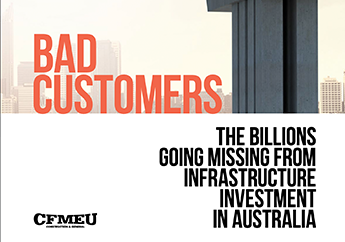Yes, it’s dark. Darker, arguably, than at any point since the second world war. We have a government not of conservatives but of the radical right, who will now seek to smash the remaining restraints on capital and those who accumulate it. They will take their sledgehammers to our public services and our public protections. They cheated and lied to assist their victory; they will cheat and lie even more to implement their programme.
They are led by a man who has expressed overtly racist views, who won’t hesitate to stir up bigotry and xenophobia whenever he runs into trouble, scapegoating immigrants, Muslims, Romany Gypsies and Travellers, the poor and the weak.
They will revel in outrage and affront, using every attack on common decency to normalise the unacceptable. This government has no vision for the country, only a vision for the oligarchs to whom it is bound, onshore and offshore.
Labour won’t win again until it works out why it lost
So I don’t want to minimise the scale and horror of what we face. But documenting it is one task; the other is resisting it. Here, roughly and briefly, is an outline of how we might begin. I am as tired and shocked and frazzled as you are, so please forgive me if I have missed some essential elements.
First, we must park the recriminations and blame. We need to be fully occupied fighting the government and its backers, not fighting each other. Solidarity is going to be crucial over the coming months. We should seek, wherever possible, to put loyalty to party and faction aside, and work on common resolutions to a crisis afflicting everyone who wants a kinder, fairer, greener nation.
All the progressive manifestos I’ve read – Labour, Green, SNP, Liberal Democrat, Plaid Cymru – contain some excellent proposals.
Let’s extract the best of them, and ideas from many other sources, and build an alliance around them. There will be differences, of course. But there will also be positions that almost everyone who believes in justice can accept.
I believe we need to knit these proposals into the crucial missing element in modern progressive politics: a restoration story
I believe we need to knit these proposals into the crucial missing element in modern progressive politics: a restoration story. A powerful new narrative is the vehicle for all political transformations. While all the progressive parties in the UK have proposed good policies, none of them have told a story that exactly fits the successful narrative template. Let’s work together to craft the story of change.
We should use the new story, and the proposals this narrative vehicle carries, to build mass resistance movements, taking inspiration from – and building on – highly effective mobilisations such as the youth climate strikes. We will draw strength from the movements in other nations, and support them in turn.
A major part of this resistance, I believe, must be the reclamation of a culture of public learning. Acquiring useful knowledge requires determined study. Yet we have lost the habit of rigorous learning in adulthood, once seen as crucial to social justice. This makes us vulnerable to every charlatan who stands for election, and every lie they amplify through the billionaire press and social media.
Those who govern us would love to keep us in ignorance. When they deride “elites”, they don’t mean people like themselves – the rich and powerful.
They mean teachers and intellectuals. They are creating an anti-intellectual culture, to make people easier to manipulate. Let’s reinvigorate the workers’ education movements. Let’s restore a rich public culture of intellectual self-improvement, open to everyone. Knowledge is the most powerful tool in politics.
We must expose every lie, every trick this government will play, using social media as effectively as possible. We must use every available tool to investigate its financial relationships, interests and strategies. We should use the courts to sue and prosecute malfeasance whenever we can.
We will create, to the greatest extent possible, a resistance economy. This means local cooperative networks of mutual support, which circulate social and material wealth within the community. The astonishing work of Participatory City, with Barking and Dagenham council in London, shows us one way of doing this.
We will find each other and ourselves through volunteering, which provides the most powerful known defence against loneliness and alienation, helps support the people this government will abandon, and can defend and rebuild the living world.
We will throw everything we have into defending our public services – especially the NHS – from the government’s attempts to degrade or destroy them. There will be many public service failures over the coming years, as a result of cuts and “restructuring”.
Let’s remember where blame for these failures will lie: not with the massively stressed and overloaded practitioners, but with those who made their jobs impossible. The long-standing strategy of governments such as this is to degrade these services until we become exasperated with them, whereupon, lacking public support, they can be broken up and privatised. Don’t fall for it. Defend the overworked heroes who keep them afloat.
No one person should attempt all these things. We will divide up the tasks, but always in the knowledge that we’re working together, with mutual support through the darkest of times. Love and courage to you all.







